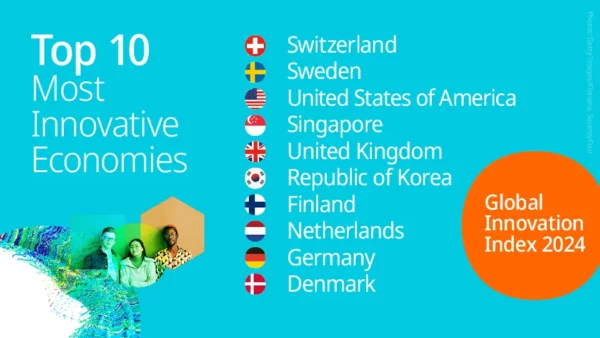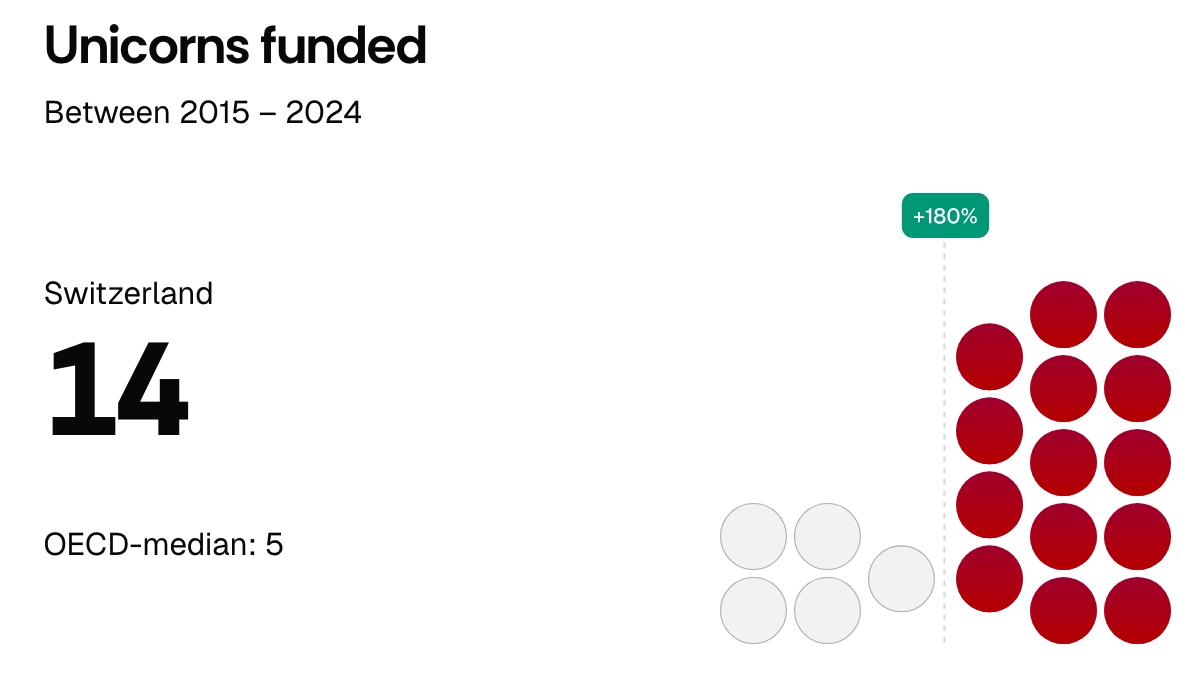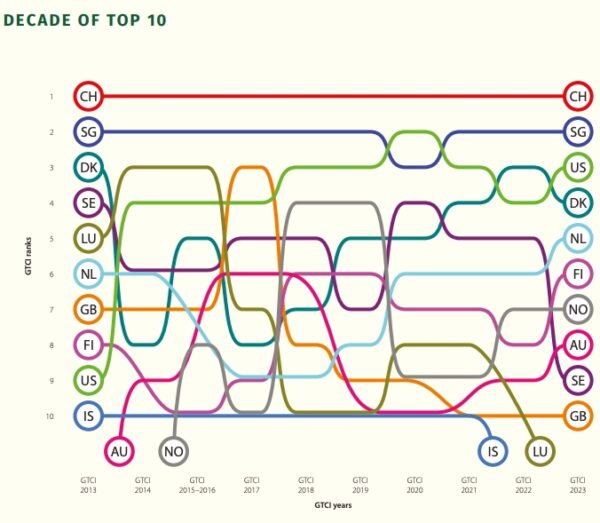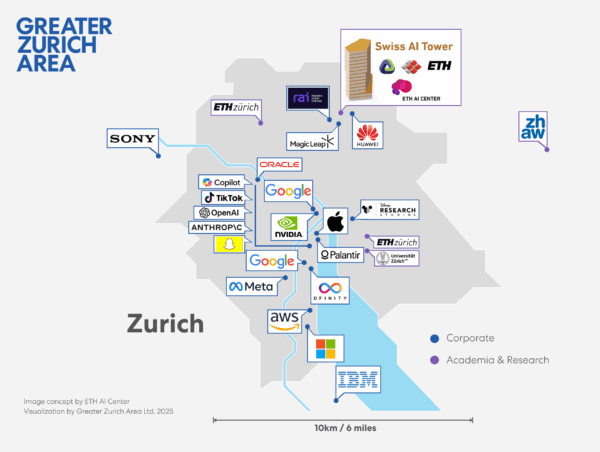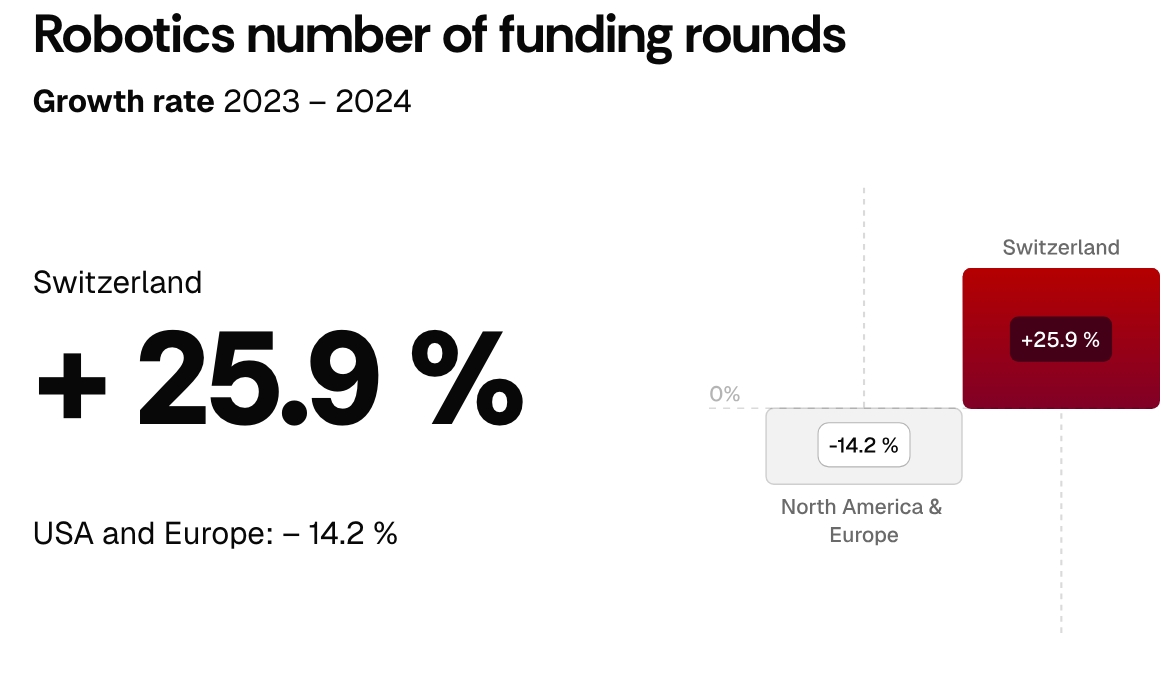A compelling article “Switzerland: A Deep Tech Beacon In Europe” was recently published on Forbes, highlighting the reasons for which Switzerland was Europe’s deep tech leader. The author, Pierrick Bouffaron, Operating Partner at Entropia Capital in Singapore, highlights Switzerland’s holistic approach to innovation, to which it owes its status of leading deep tech nation.
The narrative is well thought out, and the highlighted elements noteworthy. The author starts by defining deep tech as a term covering technologies which stem from scientific discovery and have the potential to be commercialized. At Deep Tech Nation Switzerland, we add to this definition that these scientific discoveries, or engineering innovation, should lead to a genuinely new product, and also that this product should be marketed to overcome societal or industrial challenges (read our full definition of deep tech here).
The article also defines that deep tech is becoming a highly competitive field on a global scale, with rising competition between countries. According to the author, successful deep tech ecosystems must find a delicate balance between scientific innovation, high talent density, and a fast-growing industry. He cites the well-known Bay Area, Boston, and Israel, as examples of deep tech ecosystems which have struck an attractive balance among these three pillars. Switzerland’s positioning in this landscape is underscored by data:
- Switzerland ranked first in the Global Innovation Index in 2024, and has done so for the last 14 consecutive years, surpassing not only European competitors but also global powerhouses such as the U.S. and Israel.
- Despite global economic uncertainty, Swiss startups attracted CHF 4 billion in VC investments in 2022, a record high.
Following the structure of the article, we will expand on the various topics, supporting them with data in order to back facts with figures, and enhance this analysis to deepen the reflection.
Why does Switzerland Have Global Deep Tech Leadership?
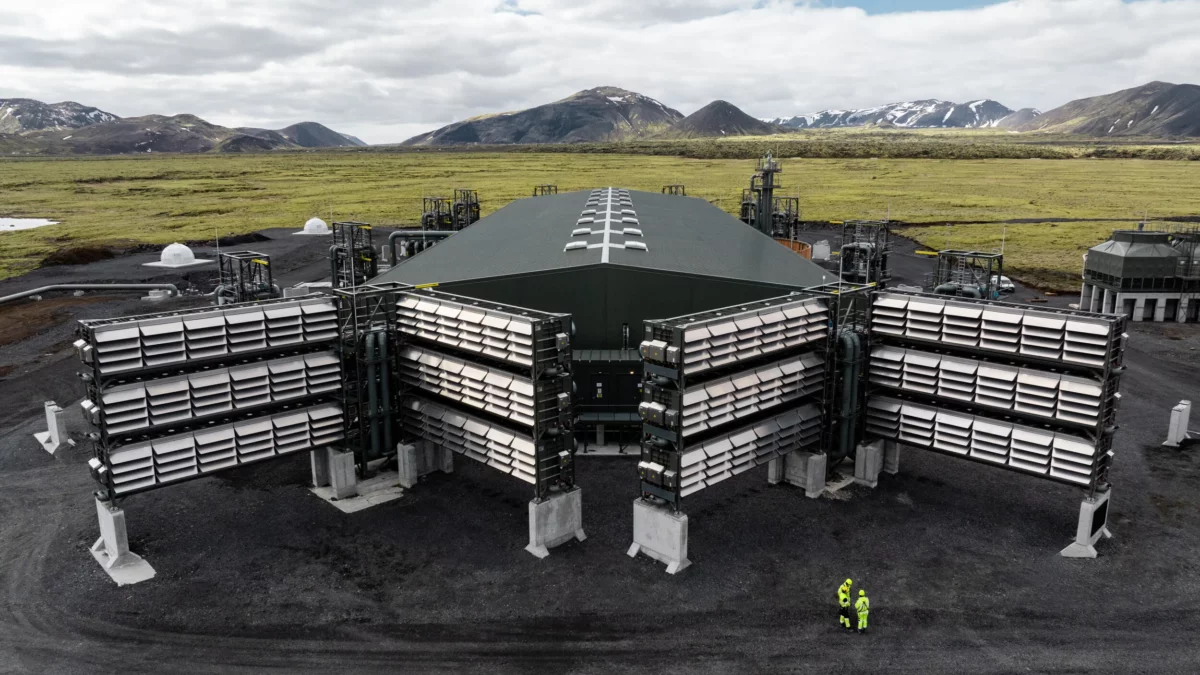
Switzerland’s leadership in deep tech is built upon a strong foundation of world-class research institutions, government-backed funding mechanisms, and an ecosystem conducive to technology commercialization. The countries holistic approach to supporting innovation is deeply anchored in its social fabric: from trade schools to universities, many organisations offer their support to would-be founders. This claim is reinforced by:
- The prolific output of ETH Zurich and EPFL, which have collectively produced 537 spin-offs in the past decade, contributing to job creation and industry advancement (Deep Tech Nation Switzerland, Dominique Mégret, p.9).
- Government-backed initiatives such as Innosuisse, which funded over 600 projects in 2023, injecting nearly CHF 500 million into the ecosystem.
- The rise of Swiss deep tech unicorns, including Climeworks, Nexthink, and SOPHiA Genetics, each demonstrating the capacity to scale research-based innovation into global enterprises.
- Switzerland has one of the highest R&D spend per capita in the world, at around 3% of the GDP.
Case studies such as Climeworks, an ETH Zurich cleantech spin-off pioneering direct air carbon capture having raised over $700 million, and Kandou, an EPFL-born semiconductor innovator securing over $270 million in VC funding, illustrate Switzerland’s ability to bring breakthrough research to market. Overall, 14 startups have achieved the status of unicorns in Switzerland between 2014-2024.
What Talent Paradox is Switzerland Facing?
Despite its strengths, Switzerland faces key challenges in talent retention and executive leadership recruitment. While the country has ranked 1st for the last decade of INSEAD’s Top 10 Global Talent Competitiveness, it simultaneously experiences a brain drain to larger economies like the U.S., the U.K. and Germany. Addressing this issue is vital for sustaining long-term innovation.
Fortunately, multinationals such as Novartis, Nestlé, Roche, ABB, and Logitech play an instrumental role in keeping talent within Swiss borders, offering attractive career opportunities and excellent quality of life.
Companies like On Running and SOPHiA Genetics provide success stories of international executive recruitment, demonstrating that Switzerland can attract top leadership to scale its businesses globally. Even at a smaller scale, deep tech startups such as Ecorobotix (their ARA sprayer is featured at the top of this article,) have made high-level recruitments among their leadership team. A systemic approach is however required to maintain competitiveness in talent acquisition.
Why is Switzerland an Innovation Pioneer?
Switzerland’s deep tech ecosystem thrives on a multi-stakeholder approach that integrates academia, venture capital, and industry collaboration. From the scientific discovery to seed fundraising, Swiss startups benefit from a committed ecosystem which has proven its ability to support the formation of world -class startups.
- Nearly 50 active venture capital funds support early-stage and growth-stage investment. (Swiss Venture Capital Report 2025, p. 32)
- The Swiss deep tech ecosystem is highly active for the country’s size, encompassing many innovation parks, leading research facilities such as CERN, and PSI, and philanthropic initiatives such as Venture Kick, which has funded 1000+ startup projects from Swiss universities with over CHF 90 million.
- Tech giants including Apple, OpenAI, Google, Microsoft, Tik Tok, Anthropic, Palantir, Meta, IBM, AWS, and Oracle have chosen Switzerland as a strategic R&D base, reinforcing its global reputation as a deep tech hub.
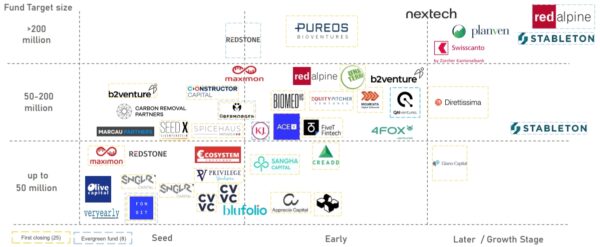
There are countless case studies of startups which have leveraged all of these mechanisms to accelerate their growth and international reach. ANYbotics, an ETH spin-off, leveraged the Wyss Zurich infrastructure in its early days, before going on to raise over $130 million, and making a successful U.S. entry. Flyability, which stems from the EPFL, demonstrates how Swiss engineering, leading universities, a supporting ecosystem, and corporate partnerships can lead to internationally present scaleups. Founded in 2014, the Lausanne-based startup has offices in North America and APAC. Its technology is used by major corporations such as Holcim, Chevron, and Cargill, who have either directly invested in the company or partnered on supporting its development. Flyability’s technology is used at scale globally, enabling its users to eliminate confined space entry for industrial inspection.
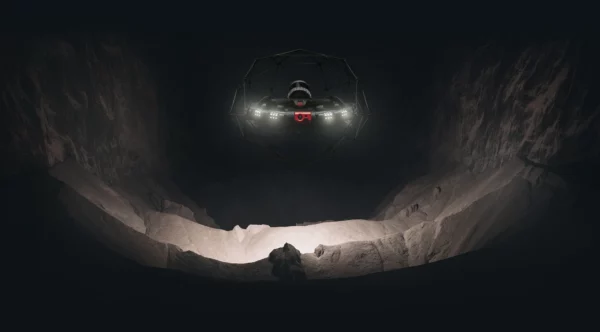
Switzerland’s Tech Leadership Will Keep Growing
Switzerland’s deep tech leadership is no accident, it is the product of a well-calibrated ecosystem that seamlessly connects groundbreaking research, strong early-stage financial backing, and an industry landscape primed for commercialization. With institutions like ETH Zurich and EPFL driving scientific innovation, government initiatives such as Innosuisse providing critical funding, and an expanding pool of deep tech unicorns proving the country’s ability to scale research into global enterprises, Switzerland continues to set a high standard on the world stage.
Yet, maintaining this position requires addressing key challenges, particularly in talent retention and leadership recruitment. While Switzerland consistently ranks among the top global talent hubs, international competition for highly skilled professionals is fierce. Fortunately, the presence of multinational corporations, a thriving startup ecosystem, and targeted investment in executive leadership help mitigate this risk.
Many signals indicate that Switzerland will experience significant growth in its deep tech sector over the years to come, as funding in industries such as robotics and biotech is growing comparatively much fast than it is in Europe and North America. In both industries, major movement has recently taken place, such as a $60 million round for ANYbotics, led by Qualcomm Ventures, and the acquisition of a Numab subsidiary for $1.25 billion.
Ultimately, Switzerland’s strength lies in its ability to transform deep scientific knowledge into tangible, high-impact solutions for industry and society, especially in robotics, life sciences, innovative AI, and climate tech. In an increasingly competitive global deep tech landscape, the country stands as more than just a beacon; it is a lodestar, offering a proven model for building and sustaining world-class innovation.
More Content
-
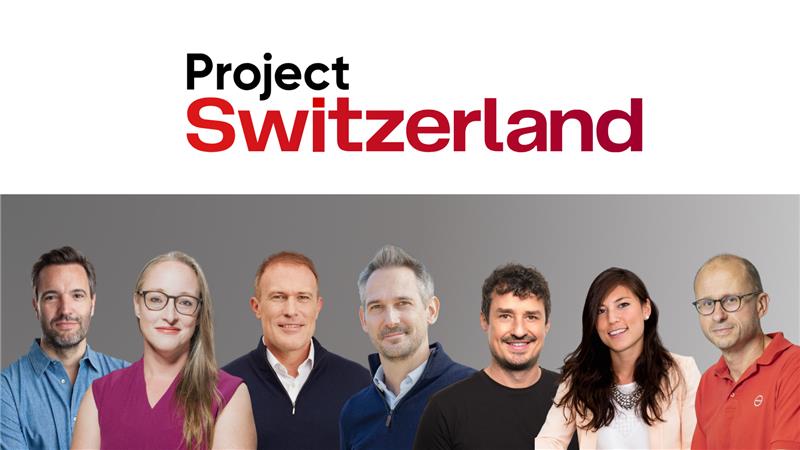
Today marks a defining moment for the Swiss innovation ecosystem. Deep Tech Nation Switzerland officially launching Project Switzerland, a national initiative with a singular, critical…
-

More money has flowed into all Swiss scale-ups per capita than into scale-ups in the US or Israel. This is backed by a ten-year growth…
-

Impatience is Imperative There is a distinct cultural friction when a Swiss founder steps into the US market. In Switzerland, the prevailing operating system is…

